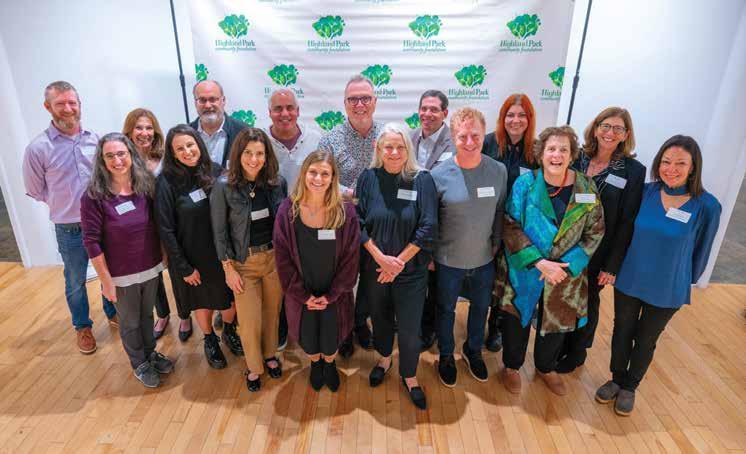
4 minute read
RECORD BREAKER
The Highland Park Community Foundation recently made the largest round of grants in the philanthropy’s history.
BY MITCH HURST THE NORTH SHORE WEEKEND
The Highland Park Community Foundation (HPCF) broke its own record late last month when it announced that it had issued $784,825 in grants to support local nonprofits.
That figure is the highest annual distribution of grants in the organization’s history— an achievement to be celebrated.
HPCF Executive Director Terri Olian says the record-breaking number is based on an uptick in community needs, partly due to the lingering social and economic effects of the pandemic and last year’s Fourth of July shooting.
This year, the foundation received more than $1 million in requests. While the organization was not able to meet all of those needs, the grants they did distribute are being used to address the educational, human service, creative, and cultural arts needs of young children, teens, families, single adults, individuals with disabilities, and seniors in the community—all while expanding opportunities for all residents.
“By and large our grant recipients make very reasonable requests, so it’s a reflection of needs in the community,” Olian says. “Human service needs and mental health needs have increased substantially.”
She says we’re living in a world right now where there is a lot of uncertainty and lot of troubling circumstances, and that is reflected in the focus of the foundation’s 2023 grant-making.

One area of need worth noting is affordable housing. While Highland Park and other communities on the North Shore have a reputation of affluence, many are left behind when it comes to being able to afford to live here.
Amy Kaufman, Director of Development and Community Relations for Community Partners for Affordable Housing—one of this year’s HPCF grant recipients—says economic conditions at the moment are challenging for those seeking an affordable place to call home.


“Rents and home prices are increasing faster than incomes, so the need is growing,” Kaufman says. “We always see a changing and dynamic need and I can’t remember a time when the need goes down. It’s always feels like it’s going up.”
HPCF’s grant to Community Partners for Affordable Housing funds the organization’s Community Land Trust, a program that creates permanently affordable (mostly homeownership but some rentals) in the community that stay affordable in perpetuity. It’s an innovative program that helps household after household.
“Whatever development cost that goes into that unit stays in that unit. On the side of home ownership, if we develop a home and sell it for an affordable price, when that person moves another low-income household gets the home at an affordable price, and the subsidy stays with the home,” Kaufman says. “Homeowners build wealth by paying down the mortgage.”
At the same time, the program develops more and more desperately needed affordable housing in the community. Finding funding for land trusts can prove difficult, and when the foundation supports its efforts, it’s a permanent investment in the community. Kaufman says while the needs are growing, her organization is also supporting individuals and families with varying circumstances.
“People need affordable housing for such a wide range of reasons. It may be low wages but also a divorce or a wage earner passing away,” Kaufman says. “Somebody may have to stay home with a sick child or parent and cut back their working hours.”
She says of all of the day-to-day needs in Highland Park and the North Shore housing is unique because it’s so expensive. People and families just don’t have access to housing because of the high cost.
“If you don’t have diverse housing stock and diverse prices, it’s hard to see how communities can be managed in the long term,” adds Kaufman. “Because not only do you need places for people who work here to be able to live here, you want a diverse group economically and in every other way to able to have access.”
For more information or to donate to the Highland Park Community Foundation, visit hpcfil.org.










